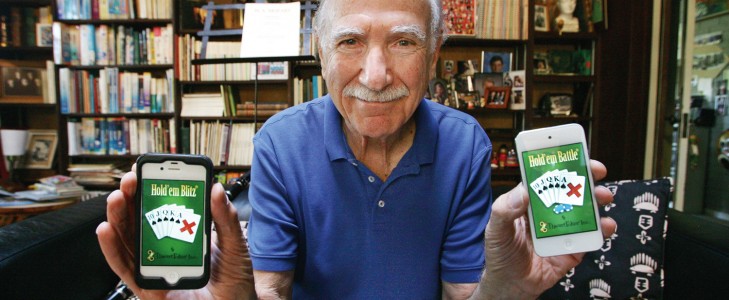Congress have been debating the legality of online poker in the United States for years. And one criticism that’s always been leveled at online poker supporters is the notion that it’s not a skill game. Most people who play Texas Hold’em and other variations know that this isn’t true, and good players will make long-term profits. But there’s enough chance involved in poker to make the non-skill-game argument viable, at least in the eyes of certain politicians.
But what if somebody were to ensure that poker was 100% based on skill? Would Congress then view it more favorably? Arthur M. Pfeiffer sure hopes so, and he’s betting a lot on a new version of poker he’s developed called Texas Block ‘Em. “I have invented a new form of poker called Texas Block ‘Em that removes the element of luck from the game,” he said. “Since my version of poker is 100 percent skill and involves no luck, it’s not gambling and therefore is legal.”
Those who’ve played Texas Hold’em should have little trouble adjusting to the rules of Texas Block ‘Em. After all, players still try to form the best hand possible by using two hole cards and five randomly dealt community cards. However, the big difference in Block ‘Em is that players get to choose their hole cards.
Now at this point, you may be thinking, “What’s to stop everybody from just choosing pocket aces?” The real skill of Texas Block ‘Em is to avoid choosing the same card(s) as another opponent, or you get blocked. Pfeiffer further explained the skill element behind his game with the following:
In regular poker, each player relies heavily on the fixed laws of mathematics to calculate the probability that the cards dealt will give him a winning hand. In Texas Block ’Em, each player relies heavily on his sense of human psychology in reading opponents to determine the probability that he can pick the right cards for a winning hand.
Pfeiffer has already released Texas Block ‘Em apps for the iPhone and iPod Touch. And the 80-year-old entrepreneur has raised $500k from the app profits and investments. However, he says that he’ll need anywhere from $750k to $1 million before he’s ready to launch Block ‘Em on the internet. Once Pfeiffer raises enough money to launch an online poker room, he’ll have two things to worry about:
- Will the US government agree with his assessment that Block ‘Em real money play is totally legal?
- Will the masses take to his game?
The first point is always iffy, given how unwilling some politicians have been to consider online poker as a game where skilled players can win. Even with Pfeiffer’s assessment that Texas Block ’em is totally skill-based – which makes it a contest, rather than gambling – it would eventually be up to Congress to verify his claims.
The second matter involves whether or not players are willing to learn Block ‘Em and stick with it. This thought isn’t lost on Pfeiffer, who points to Duplicate Poker from several years ago. “They invested over $10 million and got 250,000 users to try their product, but had a tough time getting players to stick and eventually went out of business.”
Like Block ‘Em, Duplicate Poker took chance out of the game by dealing everybody at different tables the same cards; the goal was to see who played the cards better. And although it was an interesting concept, Duplicate Poker failed. So now the question becomes whether the American public is NOW ready to give a new type of poker a try.
